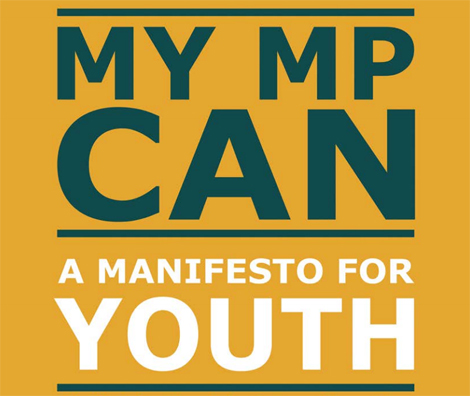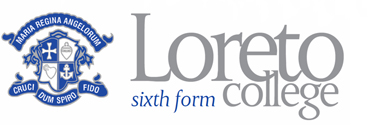“Young people demand to be heard in the General Election”

Tue, 28 Apr 2015 12:46:00 BST
Politics researchers launch A Manifesto for Youth offering the political views young people who are under the voting age of 18
A Manifesto for Youth was designed to offer young people who are not yet old enough to vote the opportunity to propose policies that they would like to see in the political party manifestoes during the General Election.
 Respondents engaged with a wide-range of policy areas, highlighting the extensive remit of youth citizenship and its overlap with the electoral interests of those over the age of eighteen.
Respondents engaged with a wide-range of policy areas, highlighting the extensive remit of youth citizenship and its overlap with the electoral interests of those over the age of eighteen.
The eight policy proposals outlined within the Manifesto proved to be the most popular amongst our respondents.
An area of particular concern was the lack of political voice that young non-voters feel they have, with many proposing a lowering of the voting age to 16 and statutory political education in schools. Economic issues were paramount too, with respondents seeking compulsory work experience in schools and the raising of the minimum wage for under 18 year-olds.
Interest in education was another key policy area, with young non-voters demanding a greater input into educational reform and a lowering of higher education tuition fees. Transport was an issue that vexed many of our respondents, with a significant number seeking the introduction of free public transport to counter rising prices that limited their freedom to travel.

 Finally, the young people involved in the project requested more support in schools focusing on youth mental issues.
Finally, the young people involved in the project requested more support in schools focusing on youth mental issues.
A disengaged generation
Politics research staff and students based in the School of Human and Health Sciences at the University of Huddersfield produced the Manifesto based on the response of young people under the age of 18 from West Yorkshire and Manchester.
A Manifesto for Youth was led by Reader in Politics Dr Andy Mycock with second-year politics student Alex Coates, whose participation on the project was part of his professional work placement, and Lammy Jones, a postgraduate student within the Centre for Research in the Social Sciences.
The research team collaborated with colleagues from the Kirklees Youth Council, West Yorkshire schools The Rodillian Academy in Lofthouse and Ryburn Valley High School in Sowerby Bridge alongside Manchester schools Loreto College in Hulme and Xaverian College.

 Since the late 1990s, research has suggested that there is now a ‘disengaged generation’ of young people who are less likely to participate in traditional forms of politics, such as voting in elections or joining political parties,” said Dr Mycock. “Young people also say they don’t trust or understand politicians and that politicians don’t understand or care about them. However, significant numbers of young people also claim they are interested and knowledgeable about politics and recognise their duty to vote even though they view the political system with ‘engaged scepticism’. They have therefore increasingly adopted new forms of political participation, particularly in the realms of social media, which seems to be an alternative to traditional and formal political activities.
Since the late 1990s, research has suggested that there is now a ‘disengaged generation’ of young people who are less likely to participate in traditional forms of politics, such as voting in elections or joining political parties,” said Dr Mycock. “Young people also say they don’t trust or understand politicians and that politicians don’t understand or care about them. However, significant numbers of young people also claim they are interested and knowledgeable about politics and recognise their duty to vote even though they view the political system with ‘engaged scepticism’. They have therefore increasingly adopted new forms of political participation, particularly in the realms of social media, which seems to be an alternative to traditional and formal political activities.
“Research has highlighted that there is a need to reform how political parties engage with and represent the interests of young people, particularly those not yet old enough to vote,” added Dr Mycock. “Political parties offer few opportunities to these young people to design policies that reflect their interests, particularly during local, national or European elections. This means that young people on the cusp of enfranchisement have scant interest in election manifestos that offer little they can relate to in terms of policy. This can instil a sense of political dislocation that can last for years.”
Commenting on the launch of the Manifesto, Lammy Jones noted “the idea of MY MP CAN was designed to make bold the purpose of the manifesto and to promote the idea that our representatives have power to enact many of these changes. While all of the participants in this document are not of voting age yet, their views should still matter and MPs should represent these as they would any other constituency member.”
“It was clear that many young people felt that their policy interests and aspirations were considered less important than older age groups,” added Alex Coates.
- Dr Andy Mycock has published widely on youth political engagement and education was a member of the UK government’s Youth Citizenship Commission in 2008-9. He recently led the Beyond the Youth Citizenship Commission project, sponsored by the Political Studies Association, which sought to engage in developing youth political engagement policy with the main political parties.
- More details about A Manifesto for Youth and/or youth citizenship research can be obtained from Dr Andy Mycock at a.j.mycock@hud.ac.uk.







